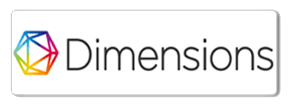THE INFLUENCE OF SOCIAL MEDIA ON PUKIS CAKE CONSUMPTION TRENDS AMONG MILLENIALS AND GEN Z: A QUESTIONNAIRE-BASED STUDY
DOI:
https://doi.org/10.70248/jismdb.v2i4.2304Keywords:
Social Media, Consumption Trends, Pukis Cake, Millennial Generation, Gen ZAbstract
Social media is a digital platform that allows users to communicate, share information, and interact in various forms, such as text, images, videos, and audio. Social media allows real-time interaction and builds social networks without geographical limitations. Social media has become a major factor in shaping consumption trends among millennials and Gen Z, including in the culinary industry. In the business world, trends are very important because they can help companies understand consumer behavior and adjust marketing strategies to stay relevant to the market. This study aims to analyze the influence of social media on pukis cake consumption trends among this generation. The research method used is a quantitative approach with a survey technique through a questionnaire distributed to respondents who actively use social media. In addition, interviews with pukis cake business actors were also conducted to understand the digital marketing strategies implemented. The results of the study show that exposure to culinary content on social media, such as reviews, photos, and videos, has a significant effect on pukis cake consumption decisions. Platforms such as Instagram, TikTok, and Facebook have become the main media in promoting products, where aesthetic factors, customer testimonials, and influencer marketing strategies play an important role. In addition, easy access to information about sales locations and online ordering also increases consumer purchasing interest. Thus, it can be concluded that social media has a major impact in shaping the trend of pukis cake consumption among millennials and Gen Z. The implications of this study emphasize the importance of utilizing social media as a marketing strategy for pukis cake entrepreneurs to increase competitiveness and reach a wider market. The level of respondent satisfaction with the choice of pukis cakes currently available is around 45%.
References
Arrahma Elian Tania, d. (2022). The Influence of Location and Price on Consumer Purchase Interest. PUBLIC: Journal of Human Resource Management, Administration and Public Service.
Anugrah, R. J. (2020). The effectiveness of implementing online marketing strategies by MSMEs during the large-scale social restrictions (PSBB) corona viruses disease 2019 (covid-19). https://jurnalfebi.uinsby.ac.id/index.php/MANOVA/article/download/302/222
Effendy, A. A., & Sunarsi, D. (2020). Student perceptions of the ability to establish MSMEs and the effectiveness of online promotion in South Tangerang City. Scientific Journal of Management, Economics, & …. http://journal.stiemb.ac.id/index.php/mea/article/view/571
Amsari, S., Shawab, N., & Anggara, W. (2023). Implications of Derivative Concept in Maximizing Profit (Feasibility Study at Ulfa Cake Shop, Medan Sunggal). Ekonomikawan: Journal of Economics and Development Studies, 23(1), 109–117.
Mutiarni, R., Mardiana, N., & Purwanto, N. (2022). Business Feasibility Study Information System (SIKUBIS) as a Learning Support in Business Feasibility Study Course. COMVICE: Journal Of Community https://doi.org/10.26533/comvice.v6i2.968 Service, 6(2), 33–44.
Nasrida, Farras Muhammad Firdausya, L. Z., & Gulo, A. L. (2023). Analysis of Micro, Small and Medium Enterprise Business Strategy of Cake Shop (Case Study of “Olahan Mey” Cake Shop in Palangka Raya). Journal of Management and Social Science
Reza Abdilah Saputra, & Abdur Rohman. (2024). Feasibility Study of Sharia Business Development of UMKM “Dodolanku Surabaya”: Marketing Aspect Analysis. Journal of Economics, Management and Business, 2(2), 53–59. https://doi.org/10.30787/jiembi.v2i2.1476
Wenny Permata Sari, & Obadja, N. N. (2023). Analysis of Business Feasibility Study on Micro, Small and Medium Enterprises (MSMEs) Kue Bangkit Kenanga Reviewed from Marketing and Management Aspects. EKONOMIKA45: Scientific Journal of Management, Business Economics, Entrepreneurship, 11(1), 439–449. https://doi.org/10.30640/ekonomika45.v11i1.1880
Yahya, L. M., Yanda, V. P., Indriyani, D., & Hafid, A. (2024). Business Strategy Analysis of Micro, Small and Medium Enterprises Cake Shops (Case Study of Ina Boy's Sponge Cake Business).
Wijayanti, A. (2021). The Effectiveness of Instagram in Increasing Tourist Visit Interest in the Special Region of Yogyakarta. Indonesian Journal of Tourism and Leisure. https://journal.lasigo.org/index.php/IJTL/article/view/138
Khoirunnida, R., Miftahul, J., Putra, Y. A., Zainarti. (2024). Effectiveness of Location Determination and Promotion Strategy on Sales Level: Case Study of Pukis Cake Kota Baru Branch Asia Mega Mas North Sumatra. Journal of Management, Business and Economics (JIMBE) Vol.1, No. 5 2024 e-ISSN: 2987-7156 pp. 163-171
Zulfa, G., Afifatus, S., Zahra, G. (2024). Pukis Mart Competitiveness Enhancement Strategy: Digital Marketing and Packaging Redesign. NCER 2024; 2(2): 102-11 https://journal.unusida.ac.id/index.php/ncer/
Citra, A. T., Melina, G.W. (2021). BRANDING STRATEGY FOR THE DEVELOPMENT OF FRUIT SALAD AND PUKIS SMEs IN SURATAN VILLAGE, GANG DIPO, MOJOKERTO CITY. BUDIMAS Journal (ISSN: 2715-8926). Vol. 03, No. 02, 2021 pp. 344-349
Putri, K., Ami, D., Gita, N. (2024). FEASIBILITY ANALYSIS AND STRATEGY OF TRADITIONAL CULINARY MICRO BUSINESS DEVELOPMENT: CASE STUDY OF PUKIS CAKE IN KOTA BARU IN MEDAN. Jurnal Review Pendidikan dan Pengajar, Volume 7 Nomor 4, 2024 P-2655-710X e-ISSN 2655-6022 pp. 15981-15988
Nazwa, Q. F., Mesye, A., Neyla, A. A., Faradika (2024). Project Base Learning Web Design Design of Pukis Meses Cake. Scientific Journal of Community Service (JIPM) Vol. 02 No. 01 (2024) Pages 292-301



















